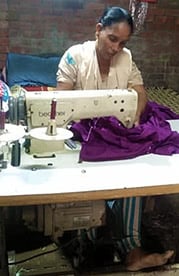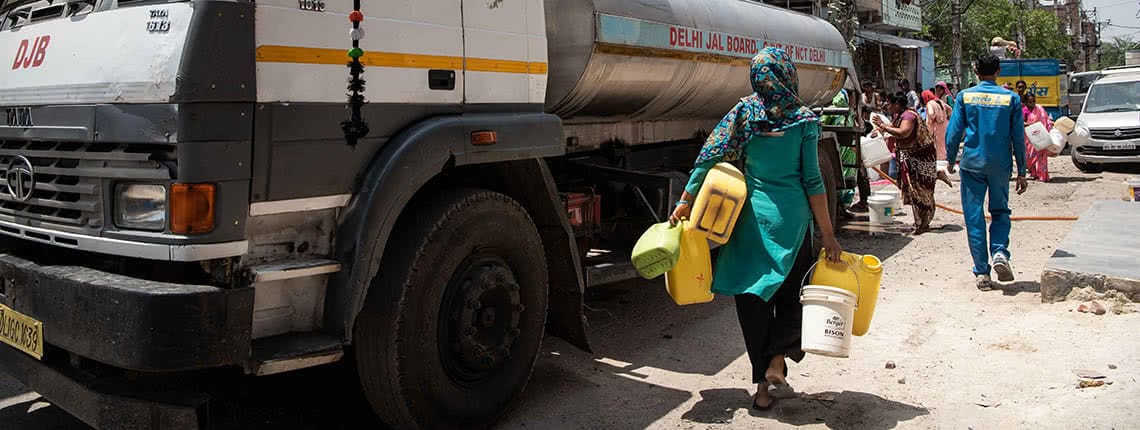Zarina is a home-based worker. She lives in Savda Ghevra, a resettlement colony on the outskirts of Delhi, where she is one of the many home-based workers in the community. She has worked as a tailor out of her home for decades, making gowns and coats for hospitals on order, as well as for the community.
 Zarina is a long-time member of her local community action group (CAG). The group of local women leaders is supported by Mahila Housing Sewa Trust (MHT) and they work to address local issues that affect their community, through collective action and engagement with local officials and other stakeholders.
Zarina is a long-time member of her local community action group (CAG). The group of local women leaders is supported by Mahila Housing Sewa Trust (MHT) and they work to address local issues that affect their community, through collective action and engagement with local officials and other stakeholders.
In March, when lockdown started in Delhi due to the COVID-19 pandemic, hundreds of migrant workers started walking back to their villages to escape the loss of livelihood and the hunger crisis that confronted them in the city. Many were arrested by the police and confined to temporary quarantine centres, one of which was created in the local government school in Savda Ghevra and which housed about one hundred migrant workers.
Zarina and other members of the CAG worked hard to support these stranded migrant workers. They provided clothing, soap, masks and other hygiene products. They also offered emotional support and counselling. These services to ensure the migrants’ physical and mental well-being were recognized by the local police and administration.
Also through her individual efforts, Zarina continued to support her community during and after the months of lockdown. Recognizing the sudden surge in demand for masks in Savda Ghevra, she stitched and distributed around 1500-2000 masks for free among residents.
In addition to providing community support, Zarina and her CAG have played the critical role of information disseminators about COVID-19, associated health precautions and testing and treatment options—a critical service at a time when misinformation and rumours were adding to the fear and anxiety of the community.
Most informal settlements continue to depend on common water and sanitation services, putting residents at greater risk of contracting the virus. To combat this, Zarina and her CAG have ensured that these common facilities are sanitized regularly and that hygiene is maintained.
As the lockdown was lifted and the residents of Savda Ghevra returned to work, the CAGs have remained vigilant in ensuring that the COVID-19 cases in their areas are contained. Partnerships with local government have led to regular health services and testing of residents.
The crisis has highlighted the critical need for community action to address the epidemic crisis. Through sustained engagement and contextual action, Zarina and other community-based women leaders have been able to provide immediate, effective and contextual solutions in congested, yet isolated, settlements like Savda where basic rights to affordable housing, water and sanitation remain elusive.
Mahila Housing Sewa Trust (MHT) is a long-time partner of WIEGO’s Delhi Focal City team.
Photo: Zarina at work in her house. Credit: MHT
